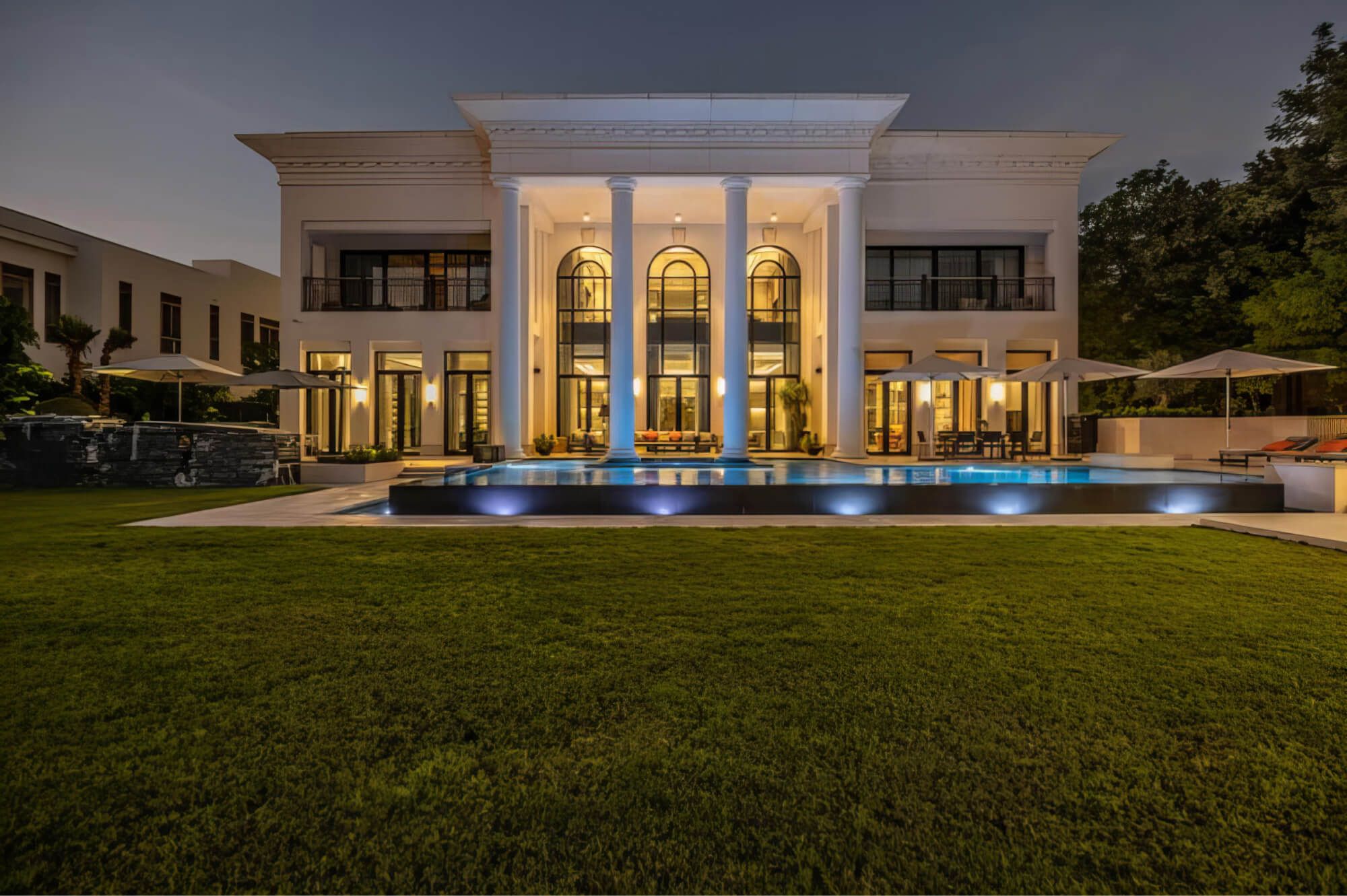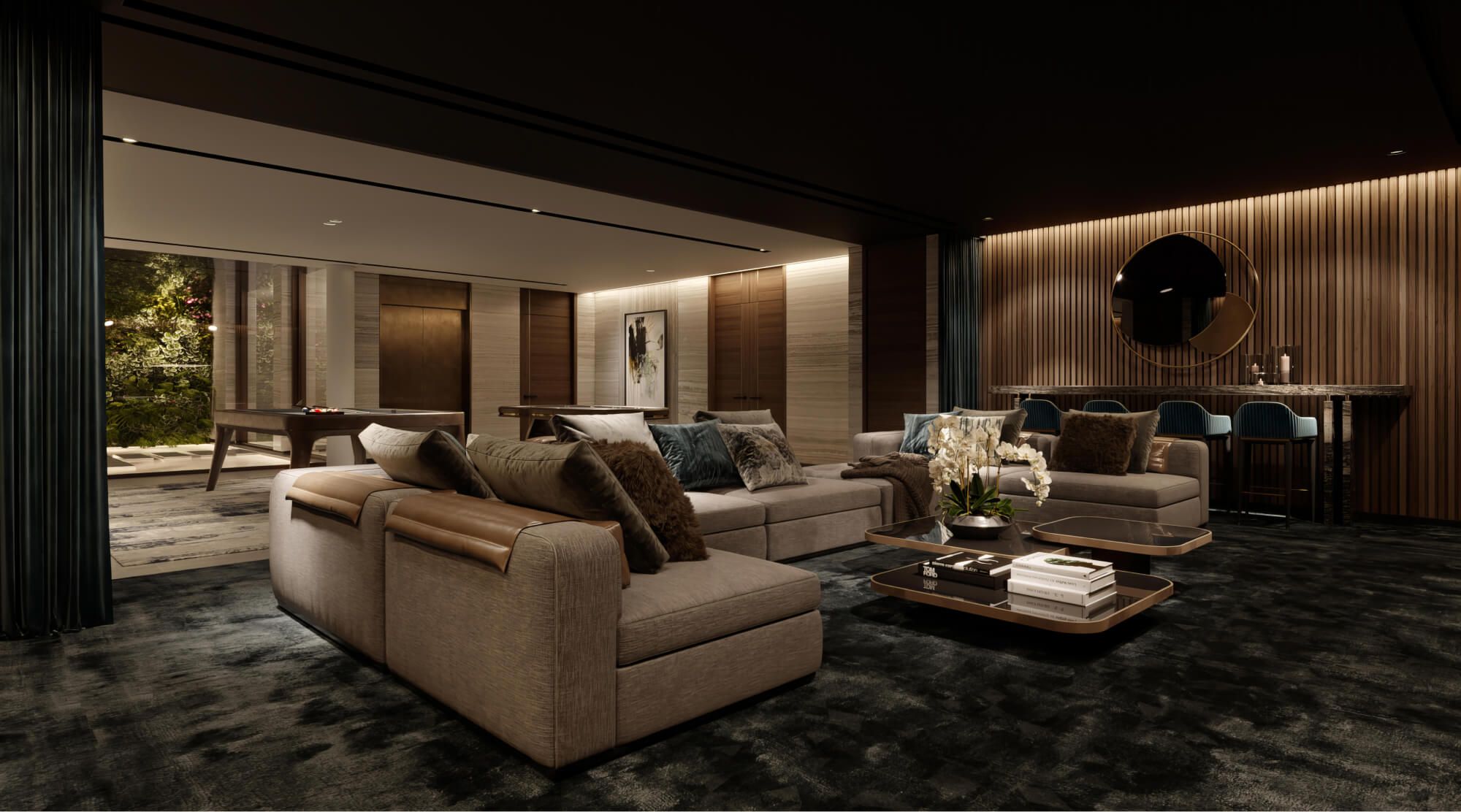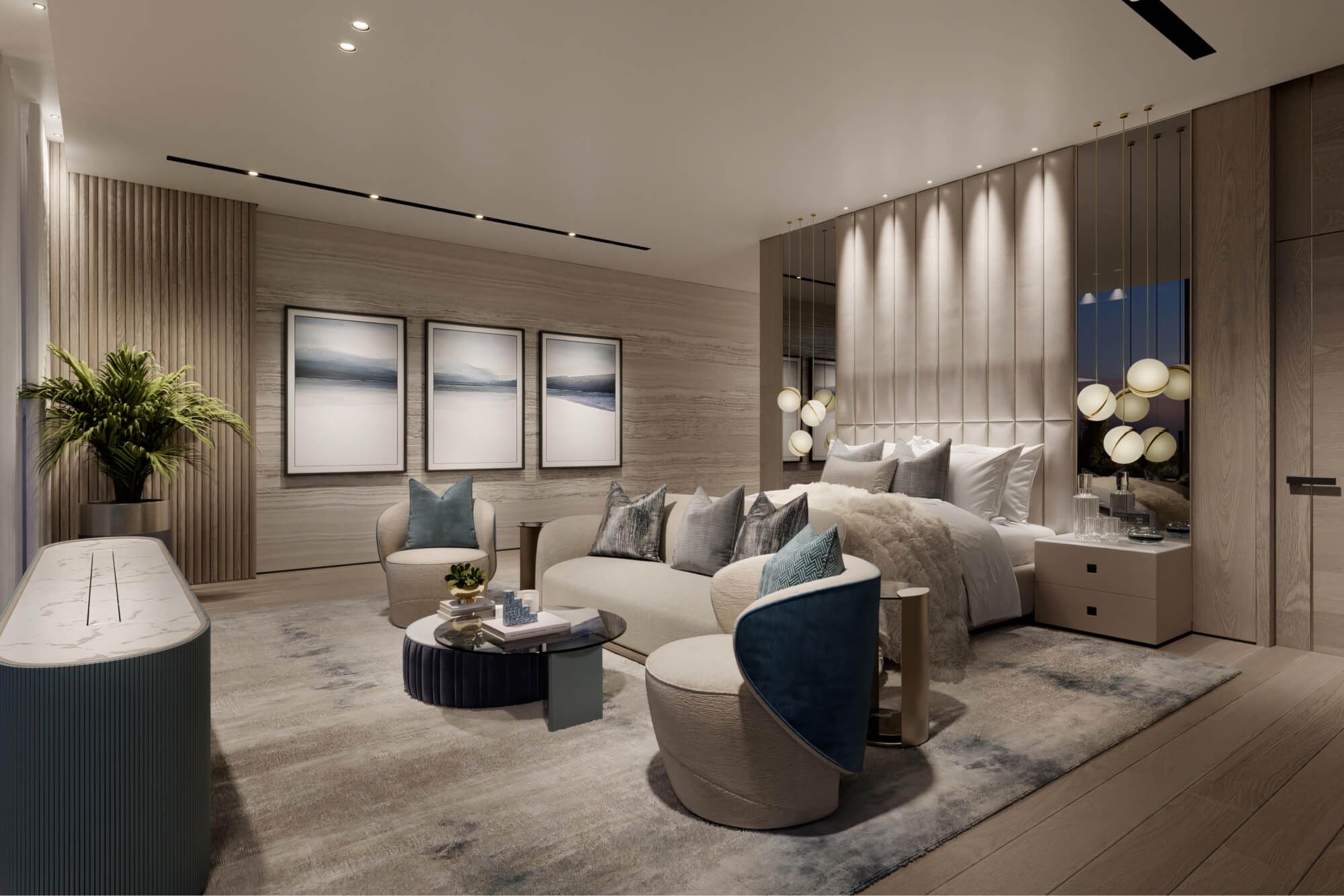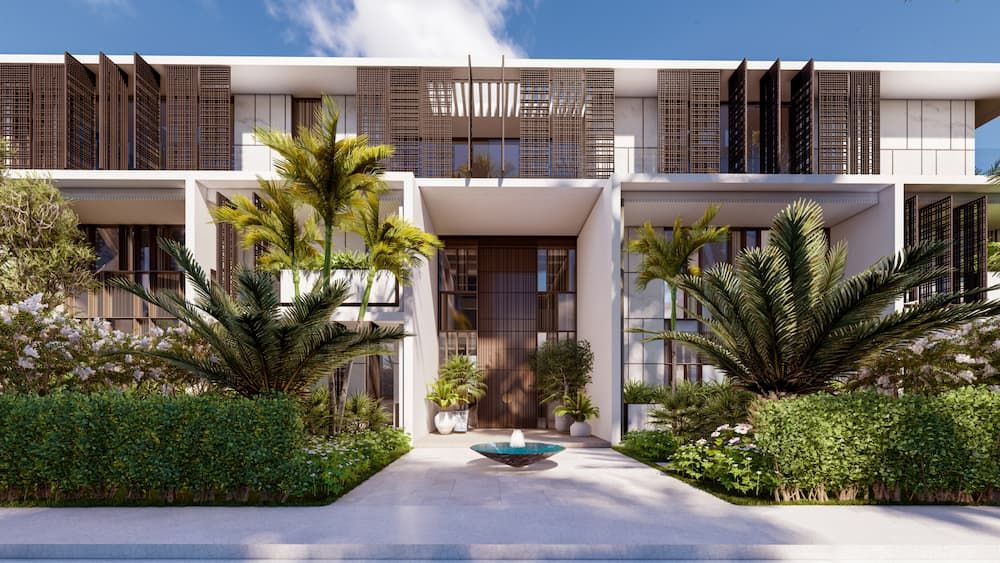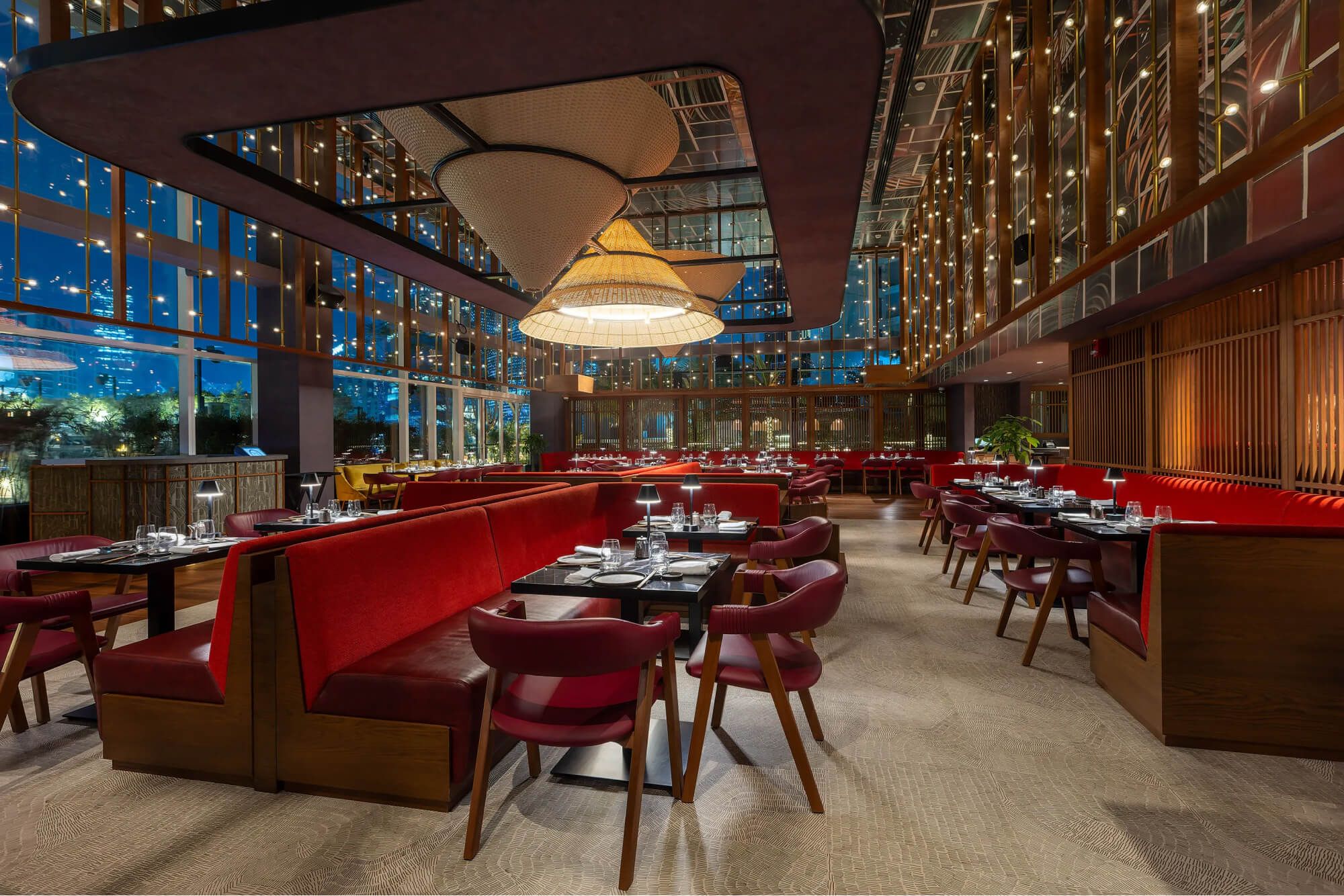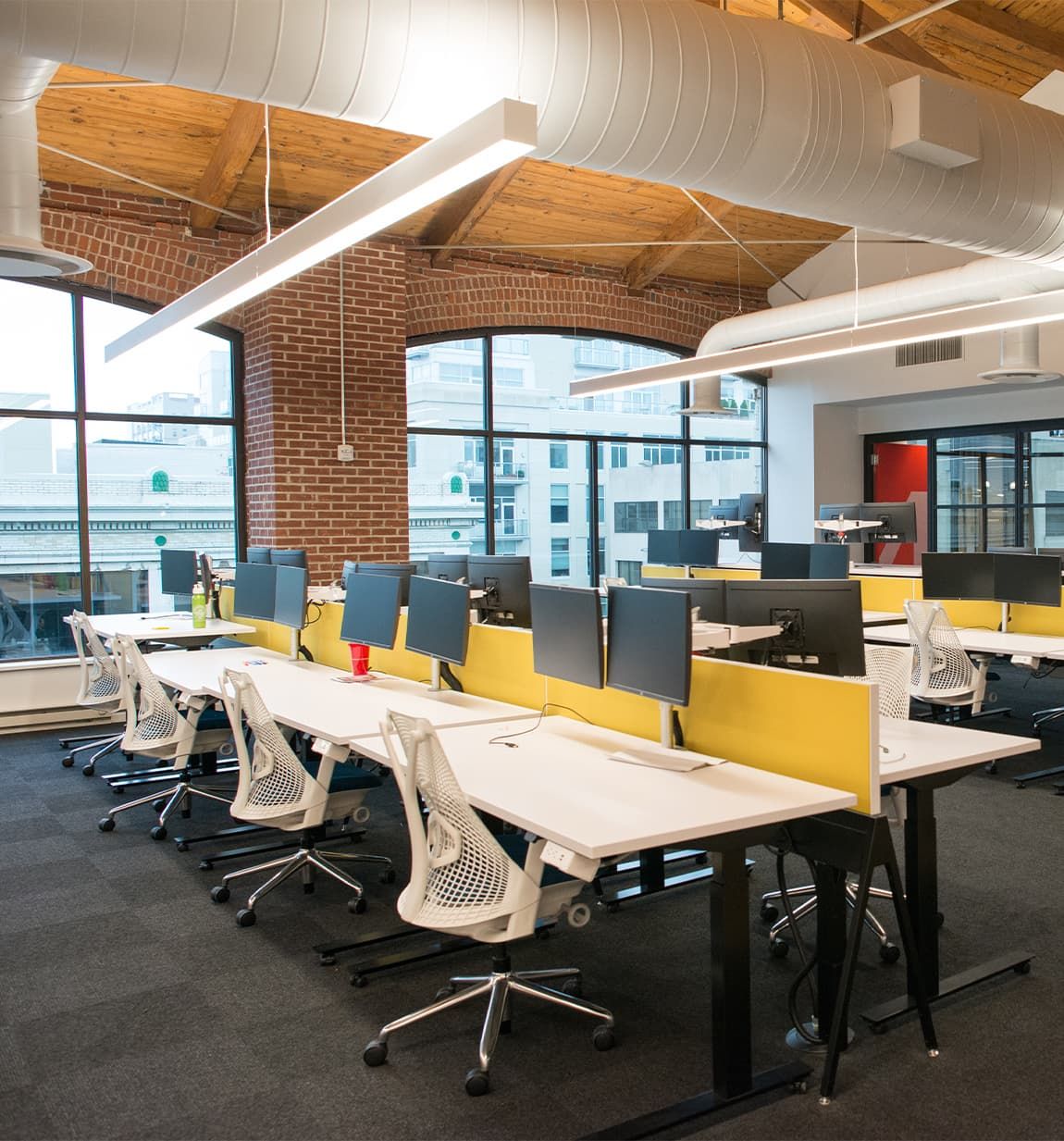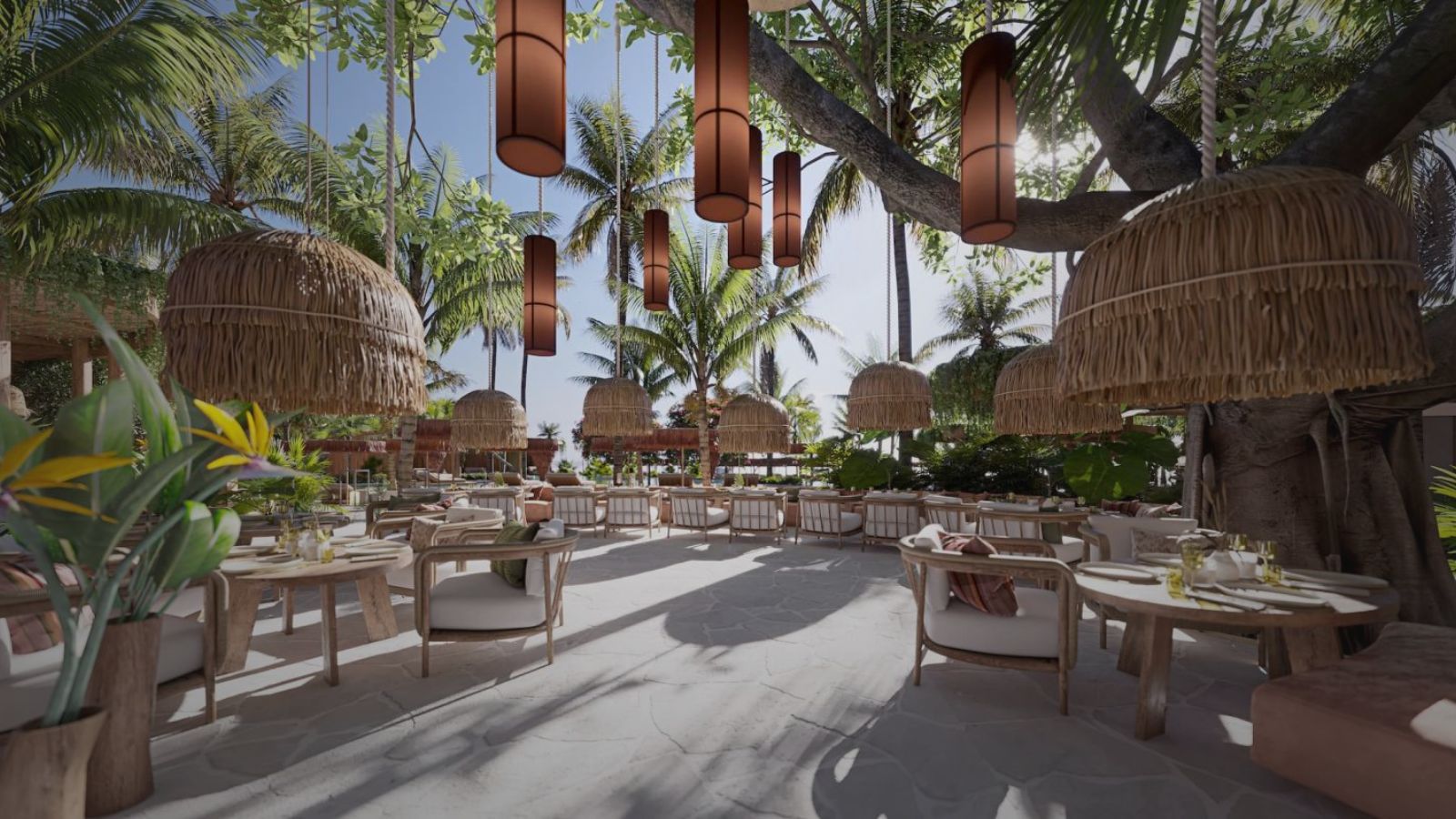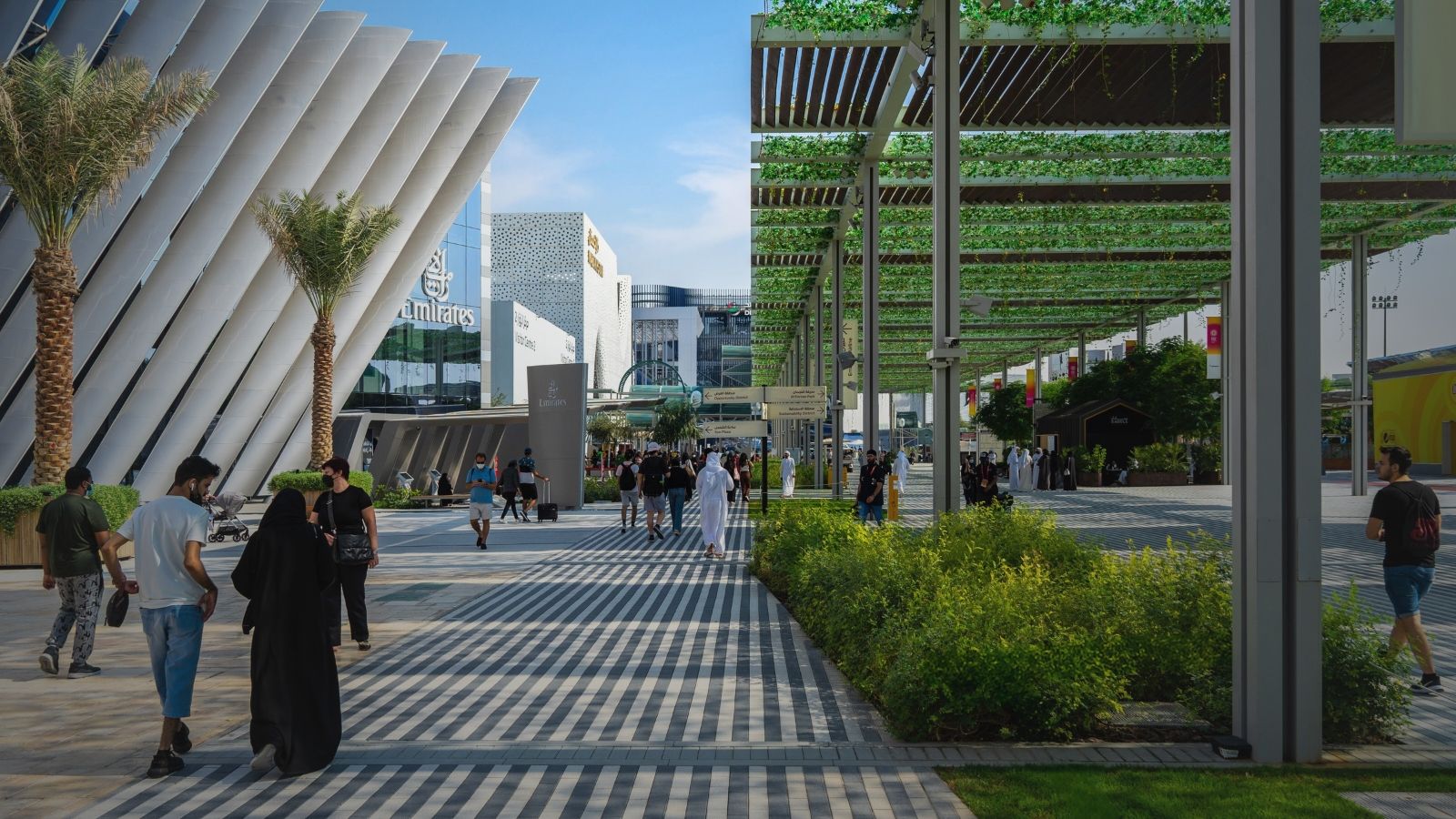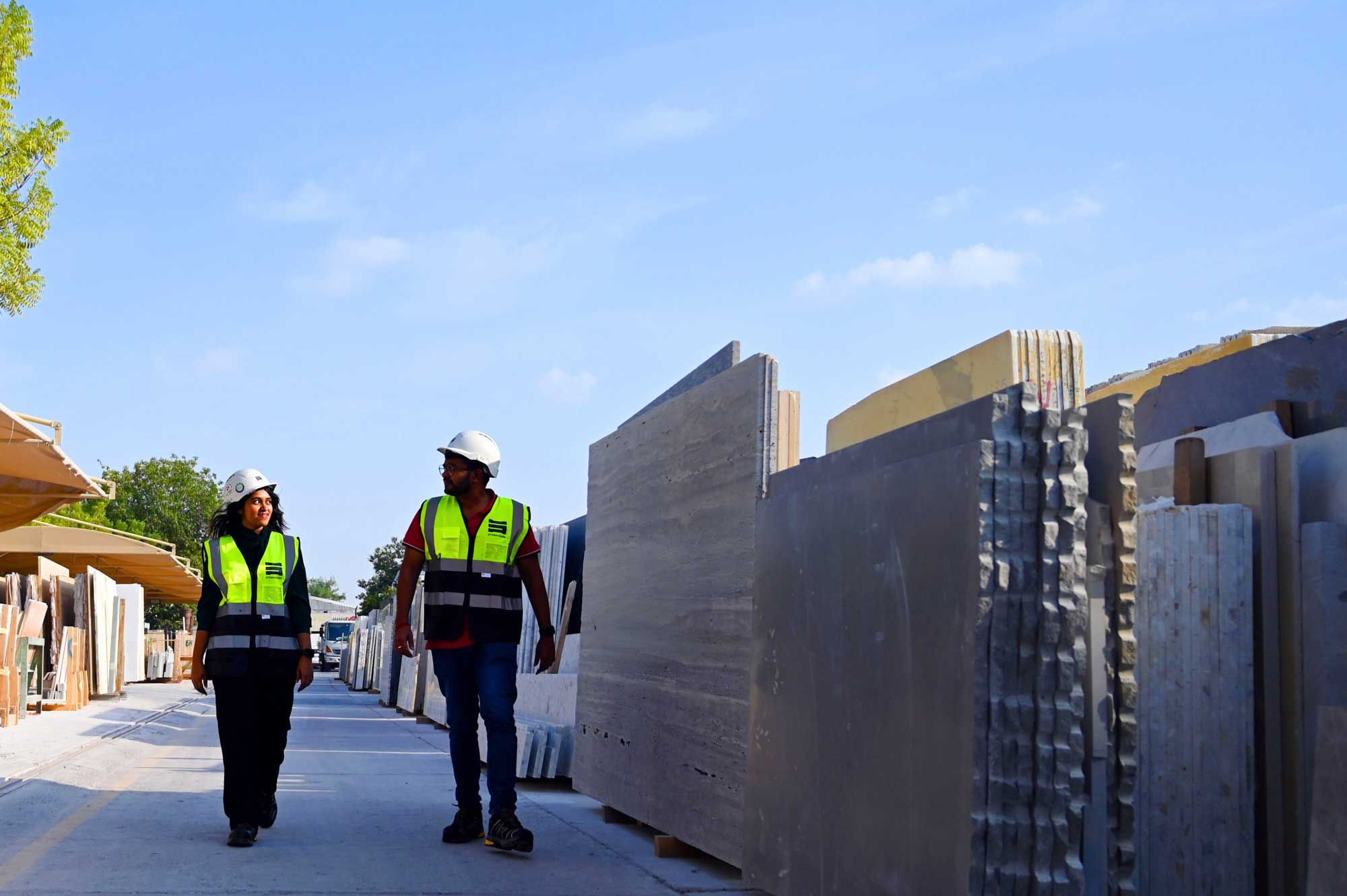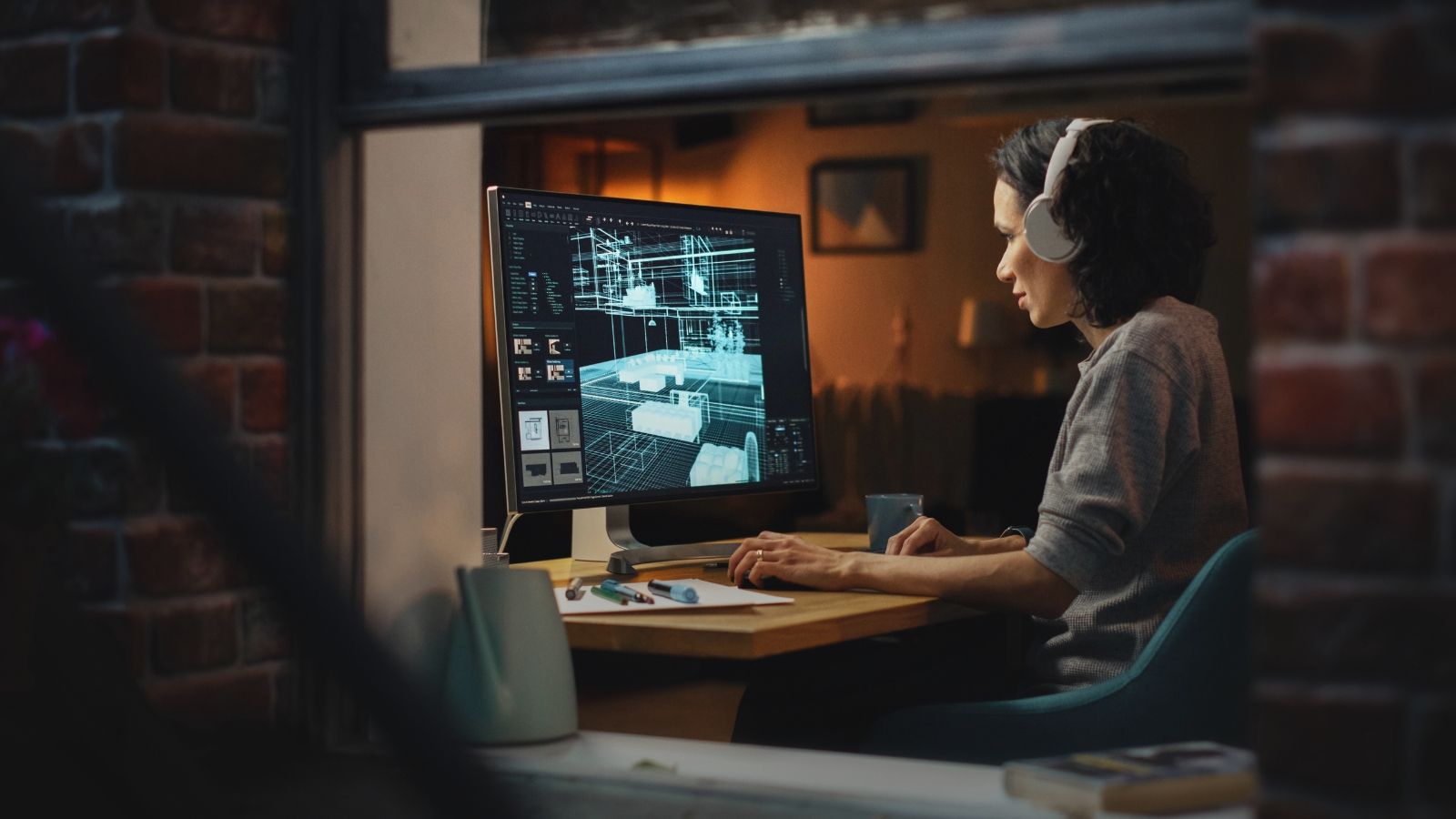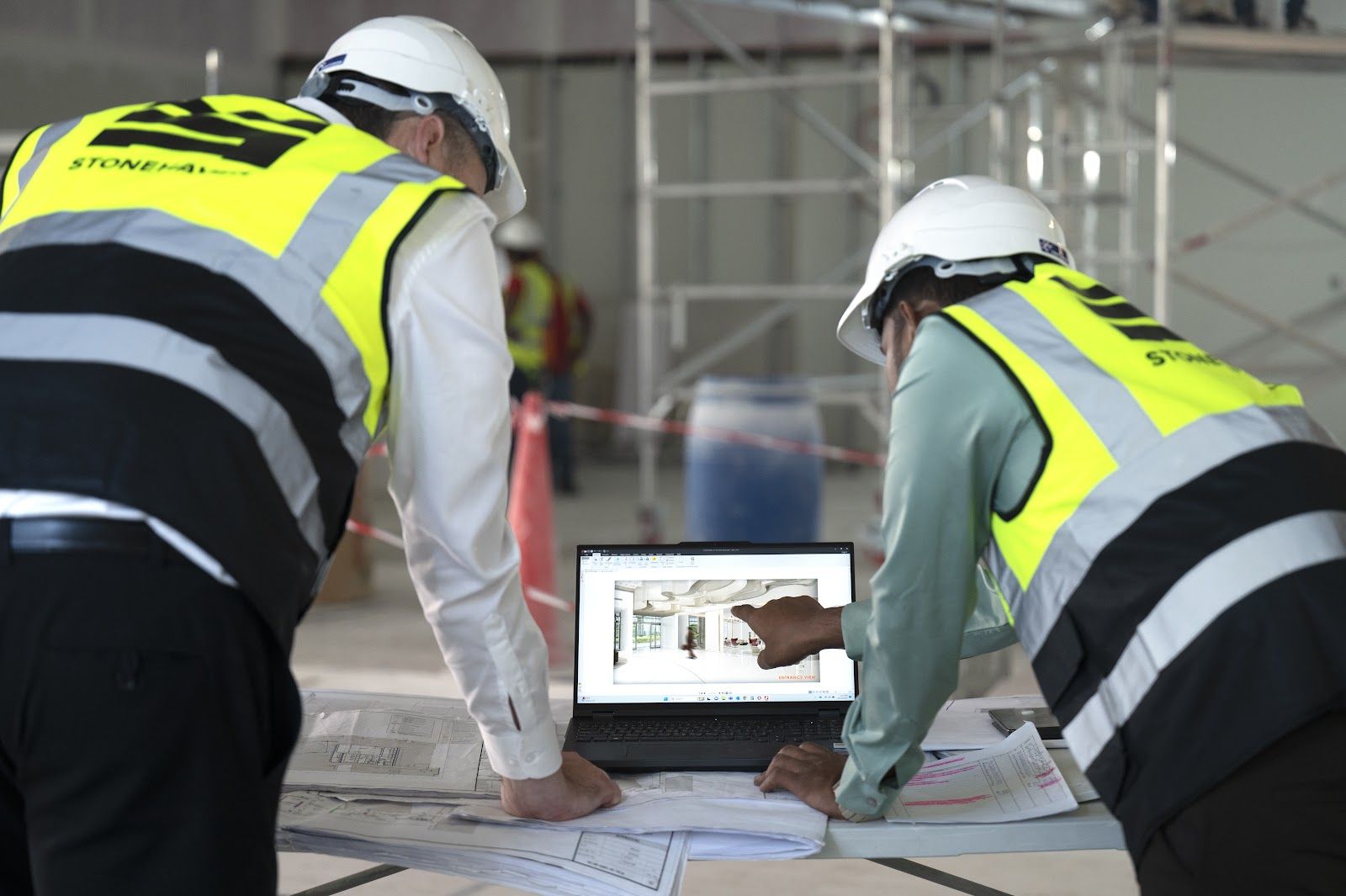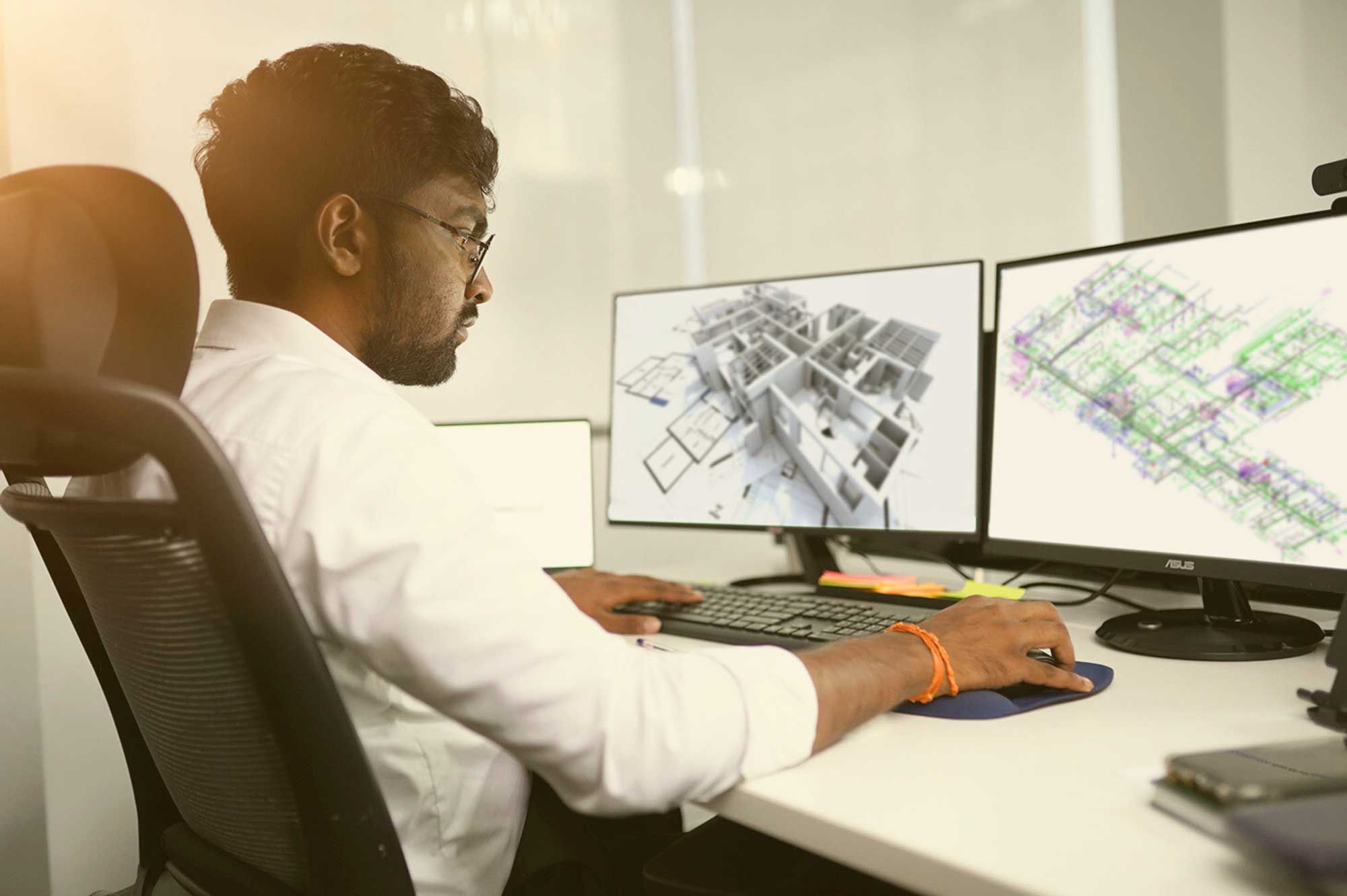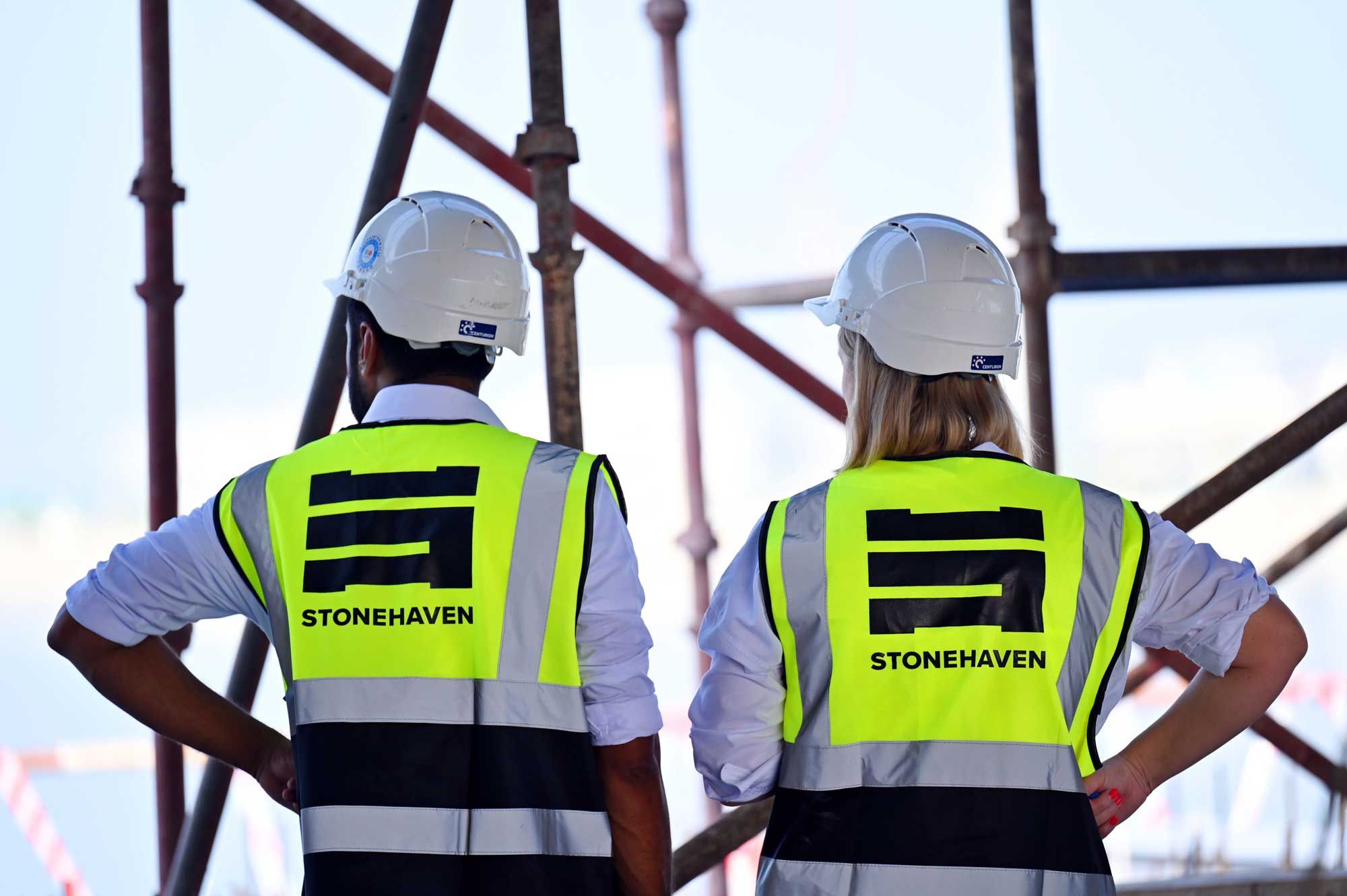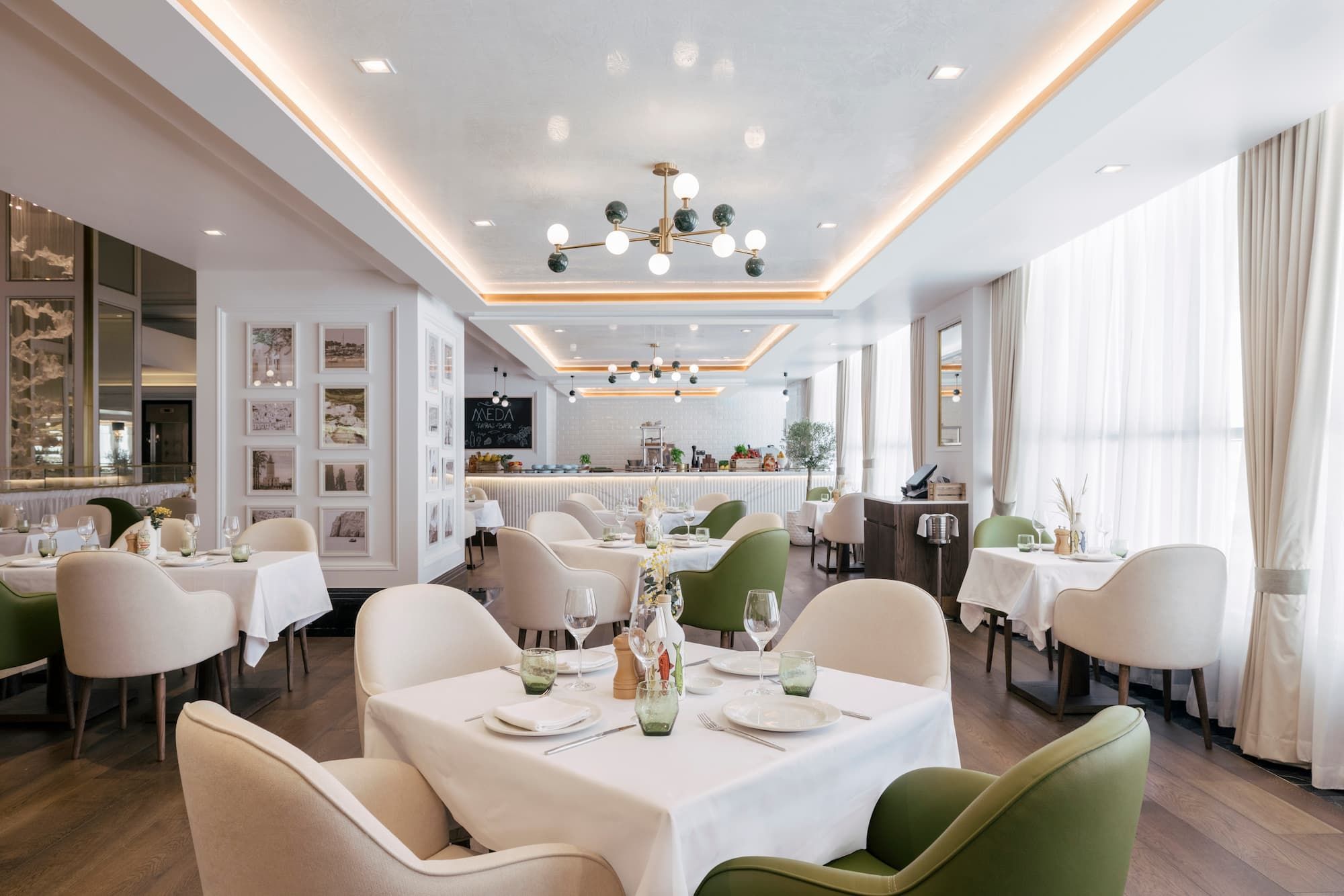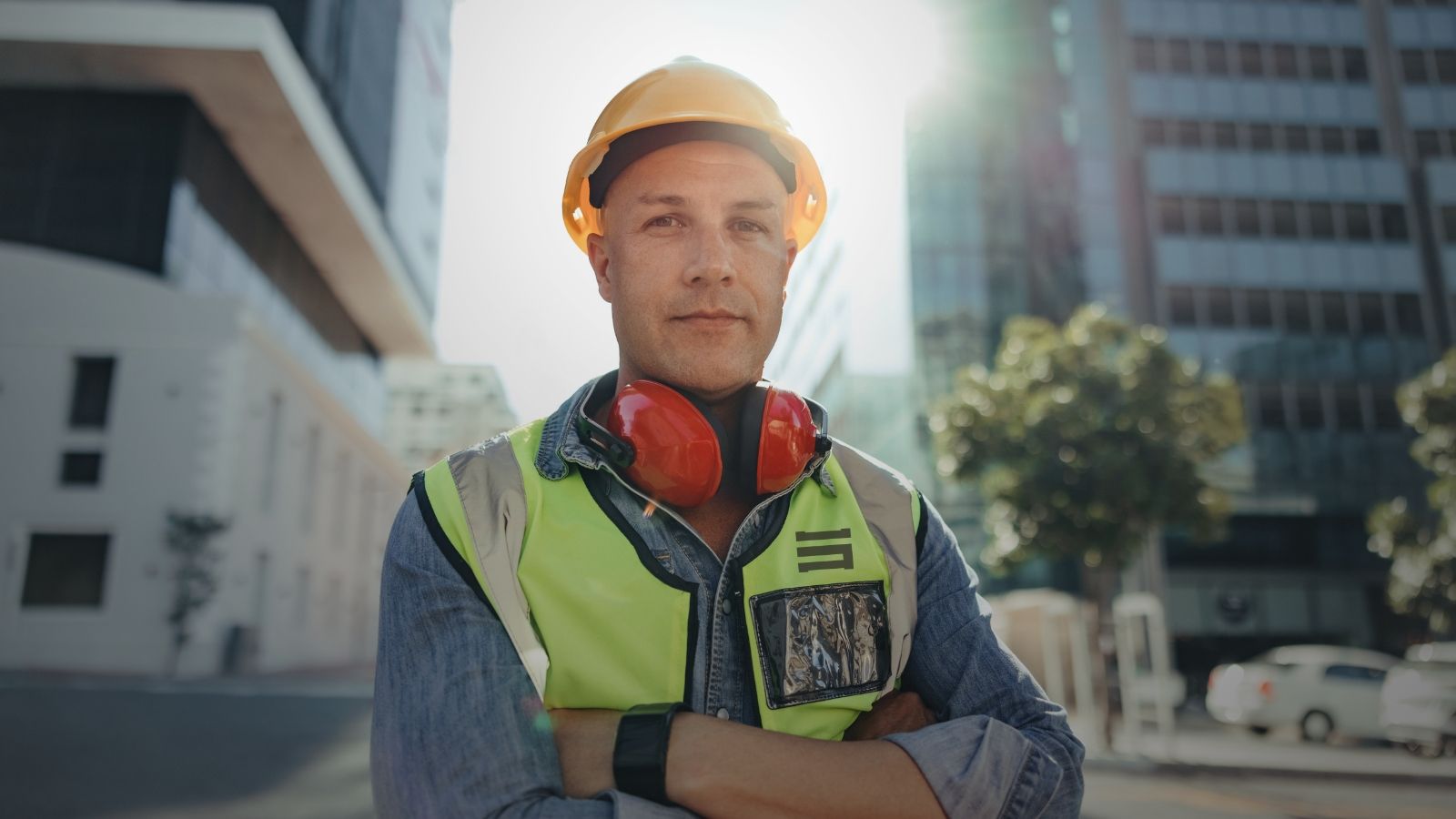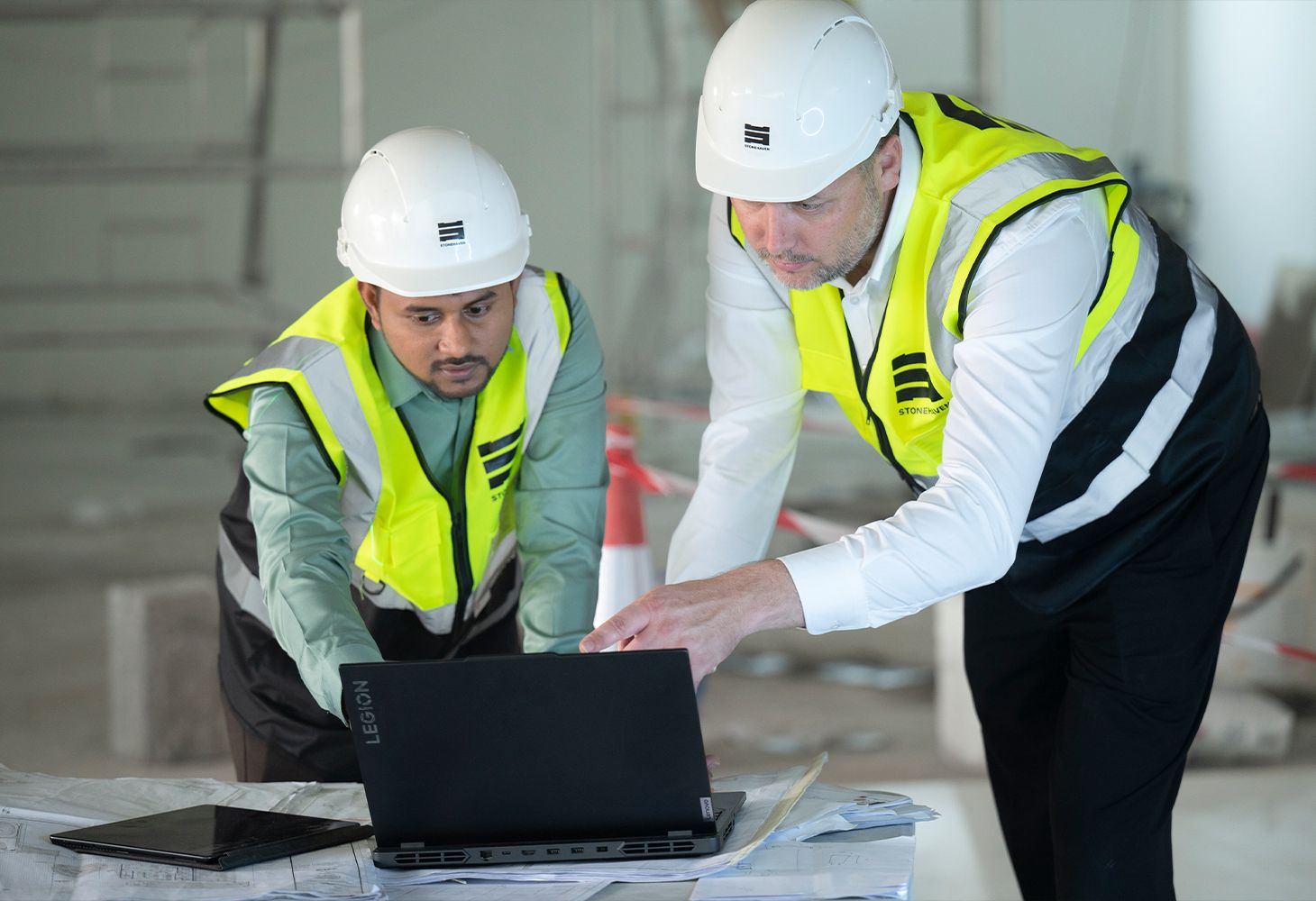As expectations rise and brands compete for attention, spaces can no longer just function, they must evoke emotion, tell a story, and leave a lasting impression. And this transformation starts long before the finishing touches. It begins at the intersection of architecture, construction, and strategic interior design consultancy.
In the UAE, especially in hubs like Dubai and Abu Dhabi, the demand for immersive guest experiences has pushed the boundaries of how we think about design in the built environment. Today’s developers and construction firms are expected to deliver more than just a completed structure, they’re expected to deliver a fully realised experience. And that’s where a specialised hospitality design consultant steps in.
By integrating design development in construction with insights from hospitality design firms, developers can ensure their projects are not only buildable but also unforgettable. Whether it's a luxury hotel, boutique resort, or a vibrant venue like Baoli Dubai, the success of any hospitality space hinges on early and seamless collaboration between project management teams, designers, and consultants.
This blog dives into the fundamentals of hospitality design, its role in construction, and how interior design companies in Dubai and across the UAE are reshaping the guest experience, all while staying aligned with budgets, brand standards, and buildability.
What is Hospitality in Interior Design?
At its core, hospitality interior design is about more than just visual appeal, it’s about creating spaces that connect, comfort, and captivate. While traditional interior design focuses on spatial aesthetics and function, hospitality design takes it further by shaping experiences. Whether it’s a boutique hotel in the centre of Dubai or a beachfront dining venue, the interior must reflect the brand’s ethos while meeting operational needs.
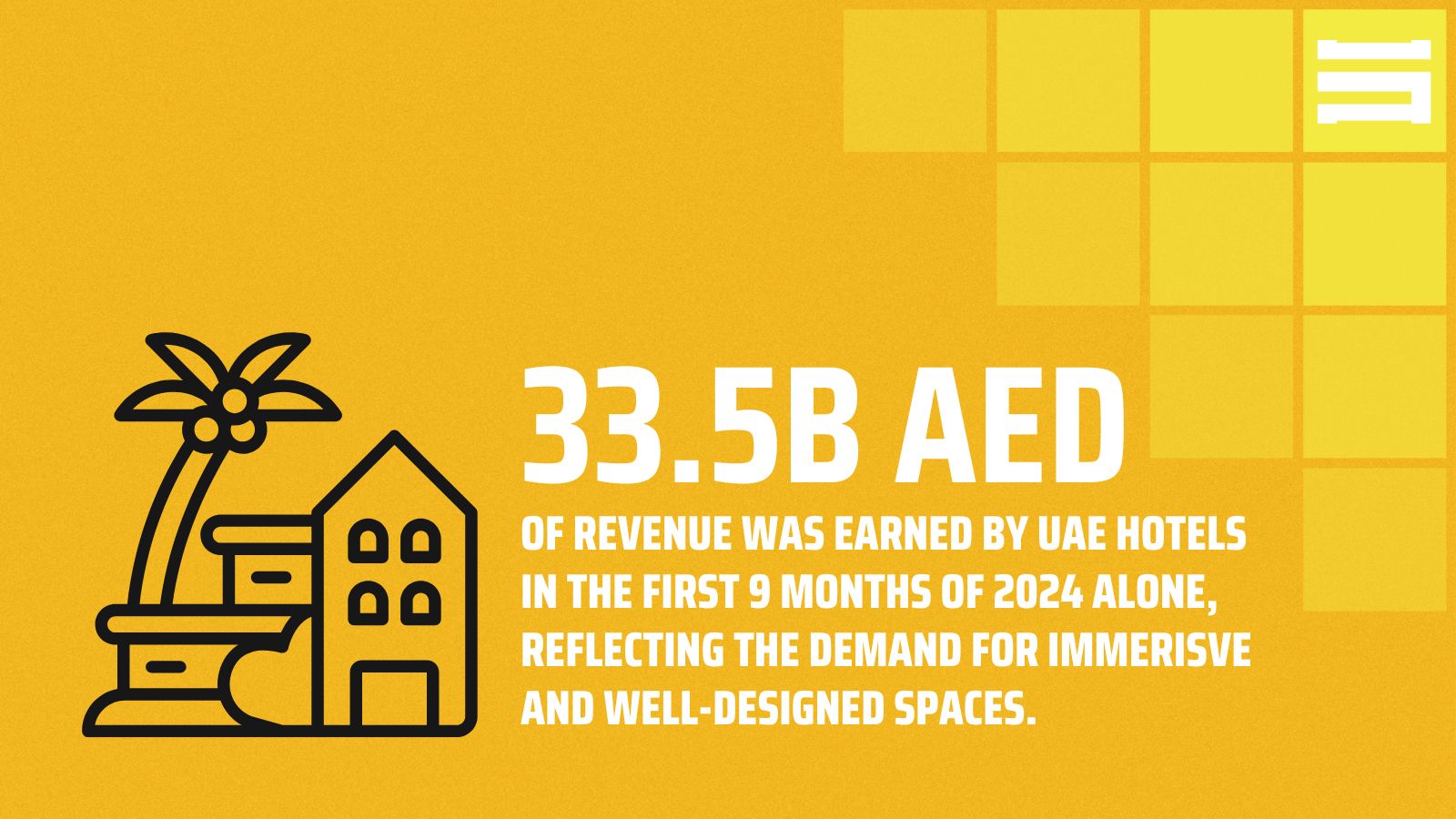
Hospitality design blends architecture, psychology, branding, and human behaviour. The aim isn’t only to impress but it’s also to immerse. From the flow of a lobby to the lighting in a lounge, every element is considered for its impact on mood, memory, and movement.
The UAE’s thriving tourism sector reflects this experiential demand. In the first nine months of 2024, hotel establishments in the UAE generated AED 33.5 billion in revenue, marking a 4% increase compared to the same period in 2023. This consistent growth highlights the strategic importance of well-designed hospitality environments where guests don’t just stay, but return, share, and spend more.
Crucially, interior design companies in the UAE understand that hospitality design is about strategic storytelling through space. A luxury resort, for example, needs to evoke escapism; a fine-dining restaurant must feel intimate yet upscale. These aren't accidental impressions but, they are intentional outcomes delivered by expert consultants and design management teams who collaborate closely with architects and contractors.
For developers and construction professionals, knowing what hospitality design entails allows for better integration during the planning and design development in construction phase.
What Does Hospitality Interior Design Encompass?
Hospitality design is a wide-ranging discipline that touches every corner of a space from its architecture to the smallest accessory. But at the heart of it all lies one objective: crafting a seamless and memorable user journey. To achieve this, design must be both beautiful and practical, emotional and efficient.
This field encompasses several layers of expertise:
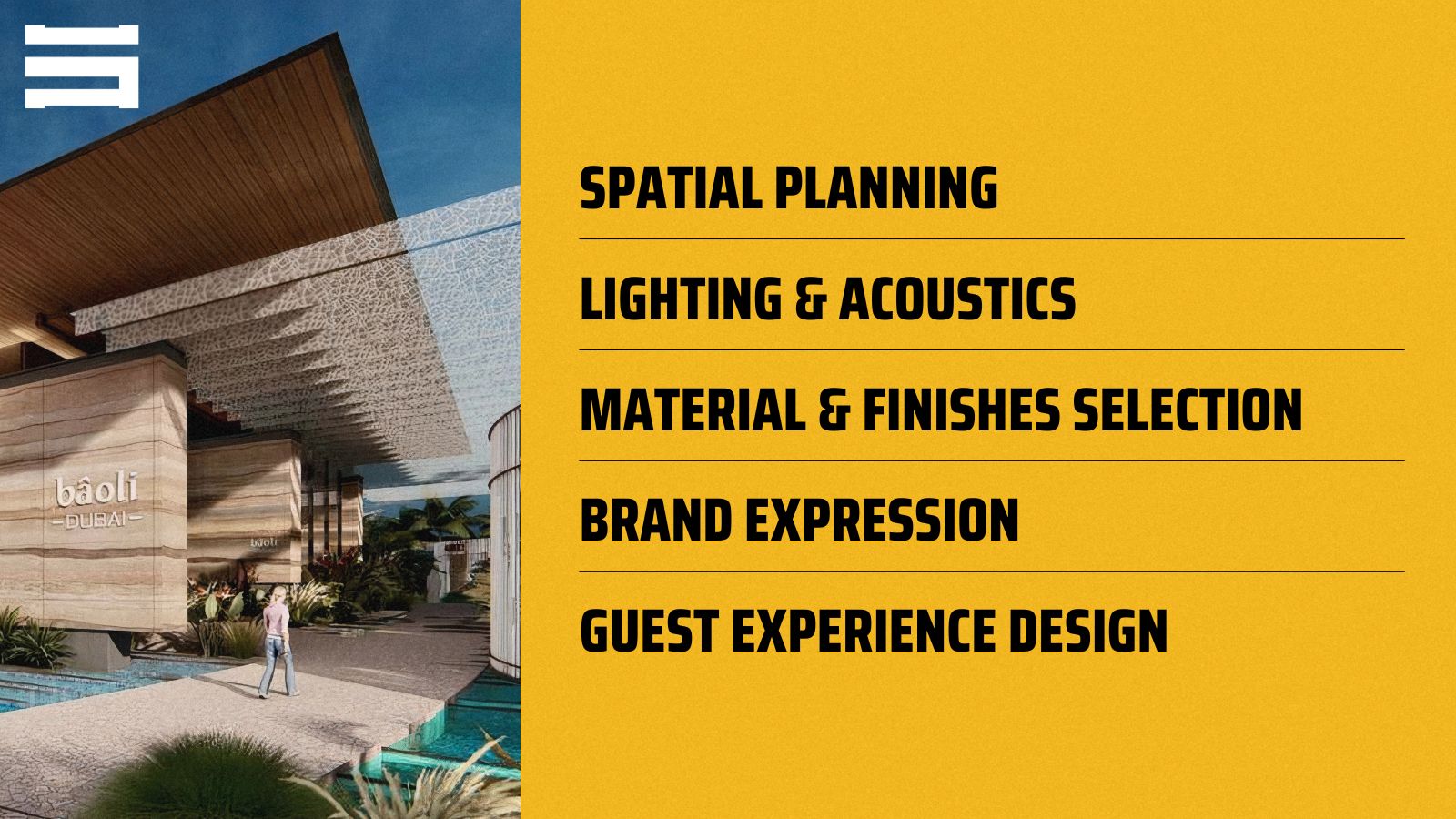
-
Spatial Planning: Effective hospitality interiors must account for flow, functionality, and flexibility. Whether it's a hotel lobby, rooftop bar, or VIP lounge, layout and zoning are carefully planned for comfort, privacy, and intuitive movement.
-
Lighting & Acoustics: Mood lighting, natural daylight strategy, and acoustic performance all play critical roles in shaping ambiance. The best hospitality design firms collaborate with MEP consultants to optimise lighting schemes in line with operational requirements and guest expectations.
-
Material & Finishes Selection: Textures and finishes must meet both aesthetic and durability needs especially in high-traffic environments. From flooring to upholstery, every material is selected with guest comfort, maintenance, and branding in mind.
-
Brand Expression: Interior spaces are physical embodiments of a brand. A hospitality designer ensures that brand values, stories, and tone are translated into every design element — colours, signage, furniture, even scent.
-
Guest Experience Design: Hospitality interiors should be designed with guests in mind. A successful design anticipates behaviour, encourages engagement, and supports operational efficiency for staff.
From concept to construction, hospitality design must also align with practical realities from compliance, sustainability, fire safety, and accessibility. This is where design development in construction becomes crucial, allowing for all creative ideas to be fine-tuned into buildable, code-compliant solutions.
Today, leading interior design firms in Dubai offer fully integrated design management services to bridge creativity and construction, helping developers avoid rework, delays, or expensive design revisions.
Why is Interior Design So Important in the Hospitality Industry?
Interior design is more than surface-level aesthetics — especially in hospitality. It plays a defining role in how a guest feels, remembers, and talks about their stay or dining experience. In a world driven by visual culture and online reviews, interior design services in hospitality can directly affect reputation, revenue, and brand growth.
1. First Impressions Drive Loyalty
Studies show that guests form an opinion of a space within the first few seconds. Well-executed interiors create an emotional response from a sense of calm in a spa to excitement in a club. These first impressions often influence whether a guest returns, recommends the space, or shares it online.
2. Where Operational Efficiency Meets Design
Design needs to appeal to the working staff too. A kitchen that’s strategically planned improves food delivery times; a check-in counter placed for visibility increases efficiency. Hospitality designers work closely with project management and design consultants to ensure beauty doesn’t compromise function.
3. Revenue Per Square Foot
Thoughtful design maximises spatial potential. More efficient table layouts, enticing circulation paths, and multipurpose zones can increase revenue in restaurants and hotels alike. Interior design is also a strategic investment with measurable returns.
4. Brand Differentiation in Competitive Markets
Especially in the UAE, where interior design companies are delivering world-class projects, standing out requires more than a good location. Your space must feel different and more inviting, more memorable, more "brand-worthy."
Ultimately, hospitality interior design is what gives a space soul. Without it, a hotel is just a building. With it, it becomes a destination.
What is the Role of a Hospitality Design Consultant?
A hospitality design consultant is not just a creative lead, they are a bridge between your vision and the final build. They ensure that the project’s creative intent aligns with operational feasibility, regulatory standards, and build timelines.
The Responsibilities of a Hospitality Design Consultant Includes,
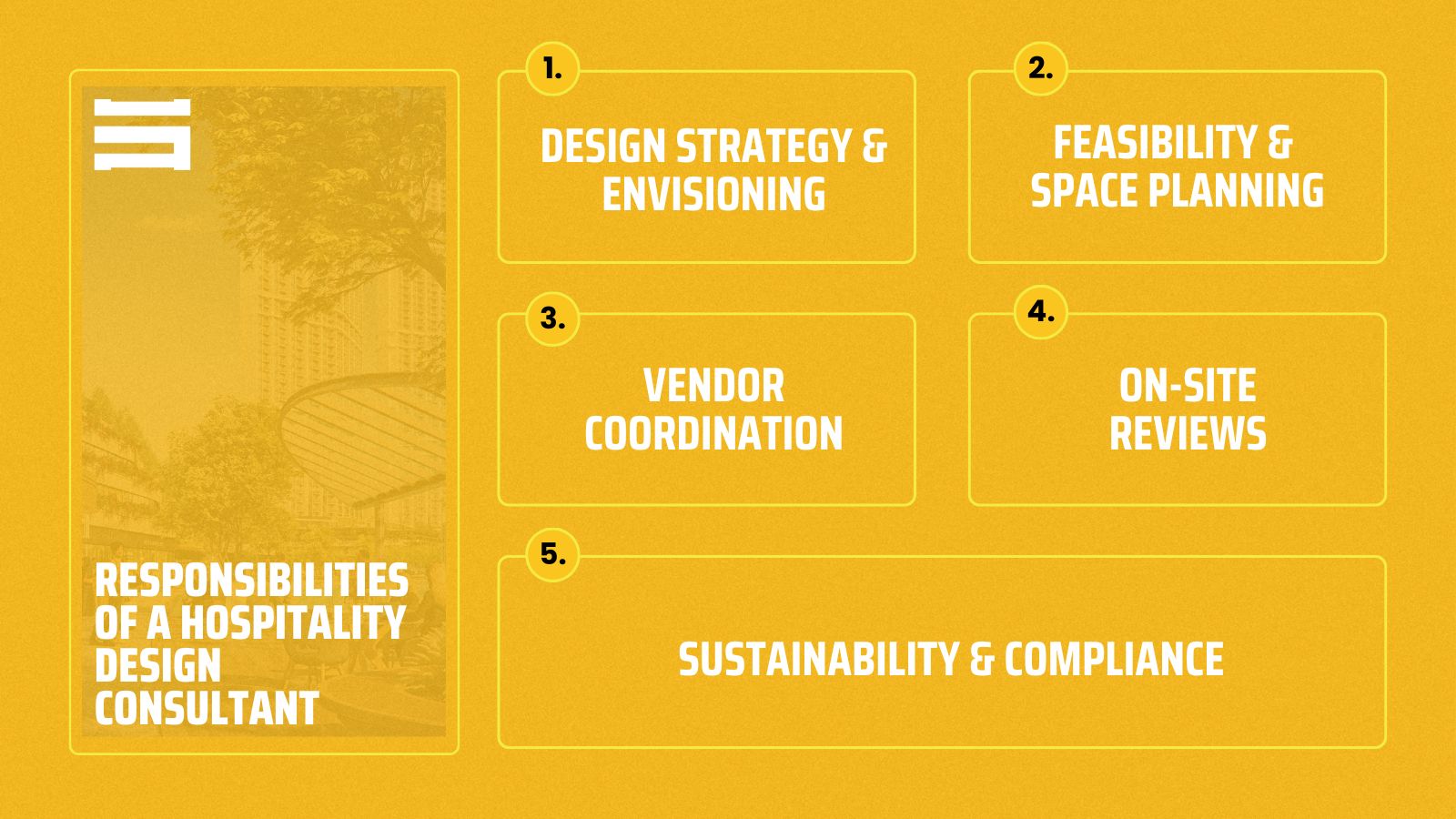
-
Design Strategy & Envisioning: Collaborating with clients to understand brand values and guest expectations, then translating them into concept designs.
-
Feasibility & Space Planning: Ensuring that proposed layouts are both guest-friendly and construction-ready, working with architects, engineers, and QS teams.
-
Vendor Coordination: Liaising with FF&E suppliers, lighting consultants, and art curators to bring each element of the space to life.
-
On-Site Reviews & Assurance: Visiting construction sites to verify design integrity during fit-outs and installations.
-
Sustainability & Compliance: Ensuring designs meet building codes, accessibility standards, and environmental regulations.
What sets experienced hospitality design consultants apart is their dual fluency, they speak both the language of aesthetics and that of construction. This is vital during design development in construction, where coordination is essential to avoid costly clashes.
For a design management company like Stonehaven, consultants play a central role in aligning client expectations with real-world delivery. They operate as trusted advisors to both developers and construction teams often identifying issues before they escalate and offering creative, cost-effective alternatives.
In markets as dynamic as the UAE, the hospitality landscape evolves fast. A great design consultant helps ensure your project isn’t just up to code but ensures it’s ahead of the curve.
Case Study: Baoli Beach Club Dubai
Baoli Beach Club Dubai is a standout example of what happens when cutting-edge construction meets visionary hospitality design. Brought to life through close collaboration between developers, designers, and consultants, this luxury venue redefines beachfront dining and entertainment in the UAE.
What Makes Baoli Beach Club Stand Out in Hospitality Interior Design?
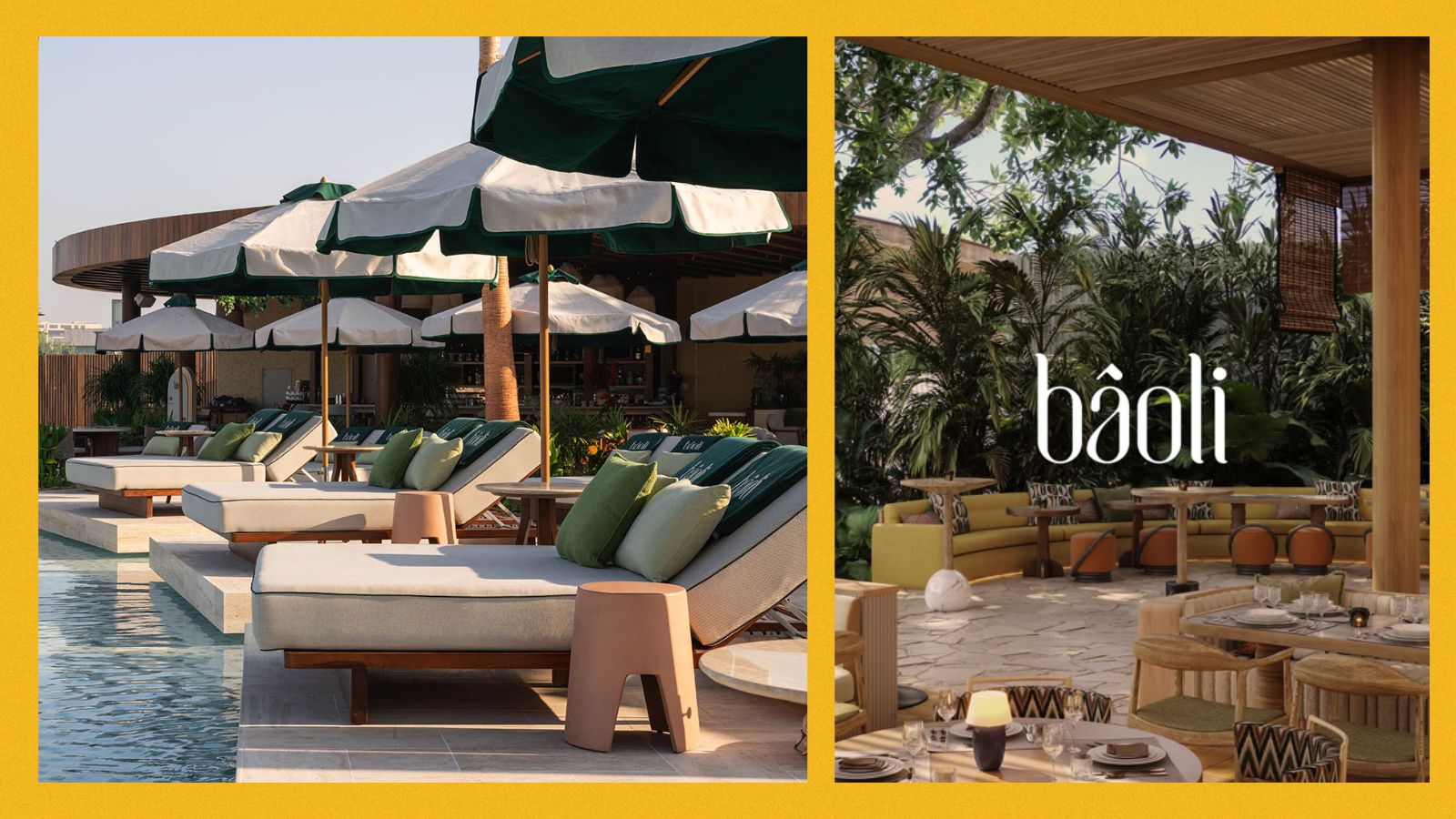
Image Courtesy: Baoli Beach Club Instagram
1. Brand Storytelling Through Spacing
Baoli originates from Cannes, known for its seamless fusion of fine dining, entertainment, and luxury lifestyle. The Dubai location embodies this ethos. Every interior element from the lighting to the textures and is infused with themes of escapism, opulence, and immersive energy. It’s a masterclass in hospitality design that tells a brand story through space.
2. Multi-Zone Guest Experiences
The venue is thoughtfully divided into distinct areas: poolside lounges, dining terraces, private cabanas, and vibrant nightlife spaces. Each zone is curated for a specific mood or guest journey, allowing the space to transition from daytime leisure to night-time glamour, a hallmark of strategic hospitality design.
3. Indoor & Outdoor Integration
Dubai’s climate and Baoli’s prime beachfront location demanded a fluid indoor-outdoor layout. The design achieves this through retractable elements, seamless flooring transitions, landscaping, and ambient lighting, offering guests an uninterrupted spatial experience.
4. Materiality and Mood Setting
Everything from the textures underfoot to the acoustics and lighting has been selected to reflect the time of day and emotional tone from laid-back afternoons to high-energy evenings. This form of material storytelling enhances guest perception and engagement.
5. High-End FF&E and Custom Details
From bespoke furniture to designer light fittings, Baoli’s interiors reflect the luxury end of commercial interior design. Each piece supports the overall guest experience, reinforcing the brand’s visual identity and elevating perceived value.
Behind the glamour lies robust coordination. The design consultant worked alongside the construction team during the design development phase, ensuring that every creative decision was feasible, code-compliant, and aligned with the project’s schedule avoiding lots of rework, reducing delays, and preserving the design vision to the last detail.
Interior design companies in Dubai, like those behind Baoli, demonstrate what’s possible when consultants are involved from day one.
Sustainability in Hospitality Interior Design
Stonehaven integrates sustainability into every phase of design development in construction, with a particular focus on Estidama, the UAE’s own green building rating system. Estidama meaning “sustainability” in Arabic was launched by the Abu Dhabi Urban Planning Council and is closely linked to the Pearl Rating System. It sets clear environmental and social benchmarks for architecture, interiors, and construction practices.
In hospitality design, this translates into:
-
Efficient space planning to reduce energy loads and optimise HVAC performance
-
Eco-certified materials and low-VOC finishes that contribute to healthier indoor environments
-
Smart lighting and water-saving fixtures, integrated seamlessly into the guest experience
-
Sustainable FF&E sourcing to reduce lifecycle impact without sacrificing luxury aesthetics
As a design management company, we ensure that sustainability is embedded into both the vision and execution. Our consultants work closely with architects, MEP engineers, and procurement teams to meet sustainability targets without disrupting design integrity or guest expectations.
Ultimately, sustainable hospitality design is smart business attracting eco-conscious travellers, enhancing operational efficiency, and supporting long-term ROI for developers and operators alike.
Conclusion
As the boundaries between construction and interior design continue to blur, the value of hospitality design consultancy becomes more apparent. In a competitive, brand-driven hospitality market like the UAE, success no longer hinges on location or size, it’s about delivering an exceptional guest experience from the ground up.
Construction firms and developers who integrate interior design services early in the project cycle see better outcomes. From improving construction efficiency to reducing scope creep and elevating design quality, the benefits of working with a trusted design management company are undeniable.
Whether you’re building a boutique hotel in Abu Dhabi or launching a high-concept beach club in Dubai, your project deserves more than a contractor and a blueprint. It deserves a partner who understands both structure and storytelling, one who sees the bigger picture and pushes pressure on getting the small details right.
About us
At Stonehaven, we specialise in Architectural and Design Consultancy that fuses creative excellence with practical execution. As a leading design management company based in the UAE, we work closely with developers, architects, and construction firms to bring world-class hospitality spaces to life.
Our team includes some of the region’s top hospitality design consultants, who collaborate across disciplines to ensure every detail from concept sketches to site handover reflects your brand’s essence and operational needs. Whether it’s a five-star hotel, destination dining venue, or beachfront lifestyle space, our focus is always the same: create exceptional spaces that perform beautifully.
Let’s build an extraordinary hospitality venue today.

